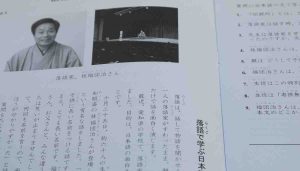Advanced Subsidiary
Who can be a candidate
Candidates who will find this easiest are people who have done the GCSE (though this is not a requirement) or who are young adults – this is largely because the topics in the exam focus on school life and issues that affect young people.
Those who have passed Japanese Foundation Grade 2 exam should also not find it too hard.
When does the exam take place?
Late May/early June.
How much should candidates study before the exam?
A good candidate should study at least four hours a week for one year after GCSE or
two years for those who have not done the GCSE.
Is it difficult to pass?
No.
It should not be difficult to pass as long as candidates are motivated and study with good teachers.
What do they test?
The exam tests the following skills:
- Reading and writing kanji,
- the ability to understand short (160 to 300 letters) essays,
- vocabulary,
- translating a Japanese essay (300 letters) into English,
- the ability to write a short essay (250- 270 letters),
- Particles (ni, ha, ga, no, etc).
What do you have to know to pass this exam?

- hiragana,
- katakana
- 700 kanji
Grammar:
- the basic grammar in Minna no Nihongo Books 1 and 2
Vocabulary
- 2500 words minimum
Are there any listening/speaking papers?
No.
You need to complete one exam paper, (Reading and Writing), in three hours.
Are candidates allowed to use a dictionary?
No.
The use of any kind of dictionary is not allowed in the exam.
How is the exam organized?
This exam usually has six texts.
From text one to four, you need to read short essays. This involves the followings:
- kanji-reading/writing,
- completing text by filling in spaces with the correct forms of verbs/adjectives,
- choosing short phrases to complete some text,
- judging if some statements are true/false based on the passage given.
Text five is a translation from Japanese to English.
The most difficult is Text six – a 250-letter essay. For this question, you must read a short text (a 250-letter or so).
Then you are asked to write an essay which has to include three points given in the paper.
For example, in the 2006 paper, you read an email from Mayumi, your friend in Japan, who wrote about Akiko, a girl who is lonely because she does not have any friends at school.
You must write a 250-letter email reply to Mayumi including the following points:
- What Mayumi and Akiko can do together.
- What Mayumi should say to Akiko.
- What you would do when you are lonely.
The following topics were included in the past exams.
Life for Japanese students aged between 10 and 18.
- A visit to a science museum,
- a diary written by a 17-year-old Japanese girl who would like to become a pianist,
- students who refuse to go to school
- a programme in Tokyo in which would-be teachers are given a chance to visit and to experience a day in a primary school
- the use of computers for study
- an email written by a Japanese student to Matt about his friend who is lonely at school
Current topics on Japan
- Vegetable farming in Nagano Prefecture,
- people who make use of the internet,
- a newly produced robot,
- a five-girl Latin American music group,
- young children who do not do a lot of physical activity,
Issues of interest to Japanese learners in the UK;
- Writing a letter to a charity requesting it to donate some Japanese books,
- the daily diet of university students.
General topics on Japan are often
- Onigiri (rice ball), sora-ben (bento lunch box for air travellers),
- the cost of uniform and equipment for school,
- female shinkansen-drivers,
- how to read signs on a map,
- a newspaper article on a 16-year-old girl who won a literary prize,

Strategies to pass:
- Learn 10 kanji every week for a duration of 52 weeks. This will add another 520 to the 300 kanji learned for GCSE. (Hiragana and katakana are pre-requisite.)
- Learn new grammatical functions from a well-structured textbook such as Minna no Nihon-go Book 2.
There is not textbook/coursebook for AS Japanese. - Learn all the vocabulary: nouns, verbs, adjectives, particles, etc in context.
- Study reading comprehension in each lesson.
- Practise writing 250-letter essays on lined-paper and attempt to implement relevant grammatical functions, plus katakana and kanji, let alone hiragana.
- Try to find opportunies to listen to Japanese and speak it to make your skills practical.
- Study past exam papers near the exam, so that you are able to prepare mentally.
- Lastly, watch Japanese anime/films and plan a trip to Japan in the near future if you have not been there yet.
